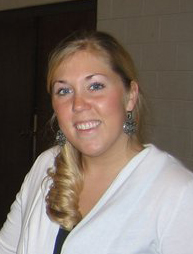Agencies that serve the basic needs of low-income people are seeing record requests for help and most are under considerable strain. But I recently spoke to one with a compelling story and an enviable track record of success that is thriving, even in this economy.
Do you know someone interested in touching a community for good, experiencing immediate gratification, making significant impact, and experiencing the joy of assisting some grateful people who have very limited options for help?
What if I told you that if you or a few friends, fellow workers, social club members, or your community group invested as little as 8 hours one weekend, I could guarantee that everyone would experience the joy and satisfaction of:
- Providing hope to forgotten people
- Offering convenience to trapped people
- Fostering a community revitalization effort
- Immediately witnessing the benefits of your volunteer effort
- Initiating a flurry of community improvement activities
Would you do it? Well, that is exactly what happens about 50 times each year for 900 volunteers in the Aurora area when they join Rebuilding Together Aurora, (RTA) an 18 year old nonprofit dedicated to a safe and healthy home for everyone. It’s mission is “To bring volunteers and communities together to improve the homes of low-income homeowners so that they may live in warmth, safety and independence.
Rebuilding Together Aurora provides free home repair and rehabilitation services to low-income homeowners in Aurora. It is focused on serving seniors, individuals with disabilities and families with children.
I recently spoke with its Executive Director, Emily Stern who came to Rebuilding Together Aurora by way of Americorps. To say she is fully engaged at RTA is an understatement. As Executive Director and the only full time employee, virtually everything flows through her. Fortunately for the agency and its clients, she is extremely capable and up to the task. In fact, her passion just oozes out of her as she talks about RTA.
Their area of focus–low-income homeowners—is an important niche to the community because it is an underserved population that most people don’t even realize needs help. Emily says they are a lot busier these days because other resources that used to serve these clients have pulled back or gone away entirely. Nevertheless, she tells me they expect a full complement of volunteers and projects in 2011, which will kick off soon.
Some of the project types include: children’s bedrooms with holes in walls allowing rain penetration and homes that need external ramps and interior accessibility modifications so wheelchair-bound residents can get around their home, and more.
RTA is fortunate to have a full complement of key supporters including government employees, tradesmen, elected officials, and businesses…not to mention all the local groups that pitch in to do the actual work.
RTA is looking forward to 2011’s housing projects and they have committed to internal capacity-building work this year to strengthen its own structure and organizational capabilities so it can keep up with growth as it continues to see record numbers of requests from local applicants and, recently, from other communities.
If you want to see how a nonprofit agency navigates through a tough economy with a smile and makes a lot of people happy, check out Rebuilding Together Aurora or contact its executive director-Emily at rtaurora@gmail.com

